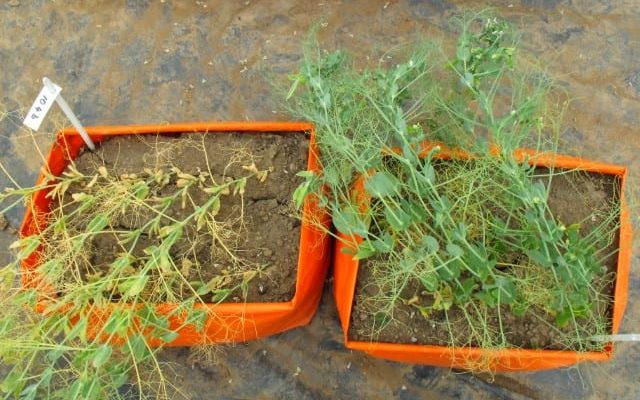Their work, which examined the effect of a hybrid biostimulant with nutrients on drought and heat tolerance in a range of crops, found that drought tolerance increased by 25-35% with yields up by as much as 30%.
“This is really game-changing – it could offer a big contribution to global food security,” says Chungui Lu, Professor of sustainable agriculture at NTU. “In the UK alone, we could save millions of pounds in lost crops.”
Abiotic stresses weaken plants’ natural defence mechanisms, increasing their susceptibility to disease, pests and crop failure. Prof Lu says: “Biostimulants have the potential to affect a plant’s response to this stress, stimulating its own natural processes, while micronutrients enrich its growing environment.”
The trial is the latest to be carried out on this new technology, after positive results under initial testing on protected salad and field crops in the Middle East, South East Asia and Europe.
Wilson Boardman, founder of CHAP member Micromix, added: “We realised we had accidentally discovered a new kind of synergy, and needed to validate it scientifically.”
An Innovate UK grant in 2014, was used for a trial on bell peppers which discovered that the key genes relating to heat tolerance were affected by the new technology. Peppers stop growing when the temperature rises to 30⁰C, but the treated crops were still actively growing at higher temperatures.
An additional Innovate UK grant in 2018 enabled the research to progress further. Prof Lu looked at a variety of crops, including wheat, peas (pictured), Pak choi and potatoes, and discovered specific genes which were triggered by the biostimulants, reducing the negative impact of stress and stimulating plant growth.
“We identified 178 key genes that are affected by the new biostimulant technology, which provides insight into gene regulation and molecular markers for breeding programmes targeted at drought tolerance,” says Prof Lu. “This will have a big impact for agriculture, protecting against climate change and directly protecting crop growth and quality.”
Prof Lu plans to publish his scientific paper in early 2021 and will then apply for further grant funding to help develop the next generation of biostimulants. He said: “It will be really good to do further research into improved crop quality. The outputs of the research will enable the successful commercialisation of novel farming systems, which will in turn help to improve food security, reduce the environmental impact of food production, create local employment and contribute to community health, wellbeing and sustainability.”
Micromix plans to launch products based on the research to market in the next two years, although application techniques will be refined as the research continues. For more information visit www.micromix.com.
For more information about CHAP membership, go to Membership Info.
If you have any questions about working with CHAP, please send us an email using the enquiries form at the bottom of our homepage.












